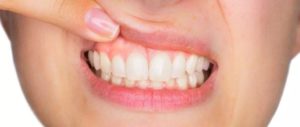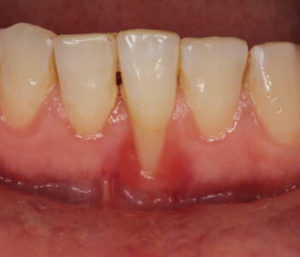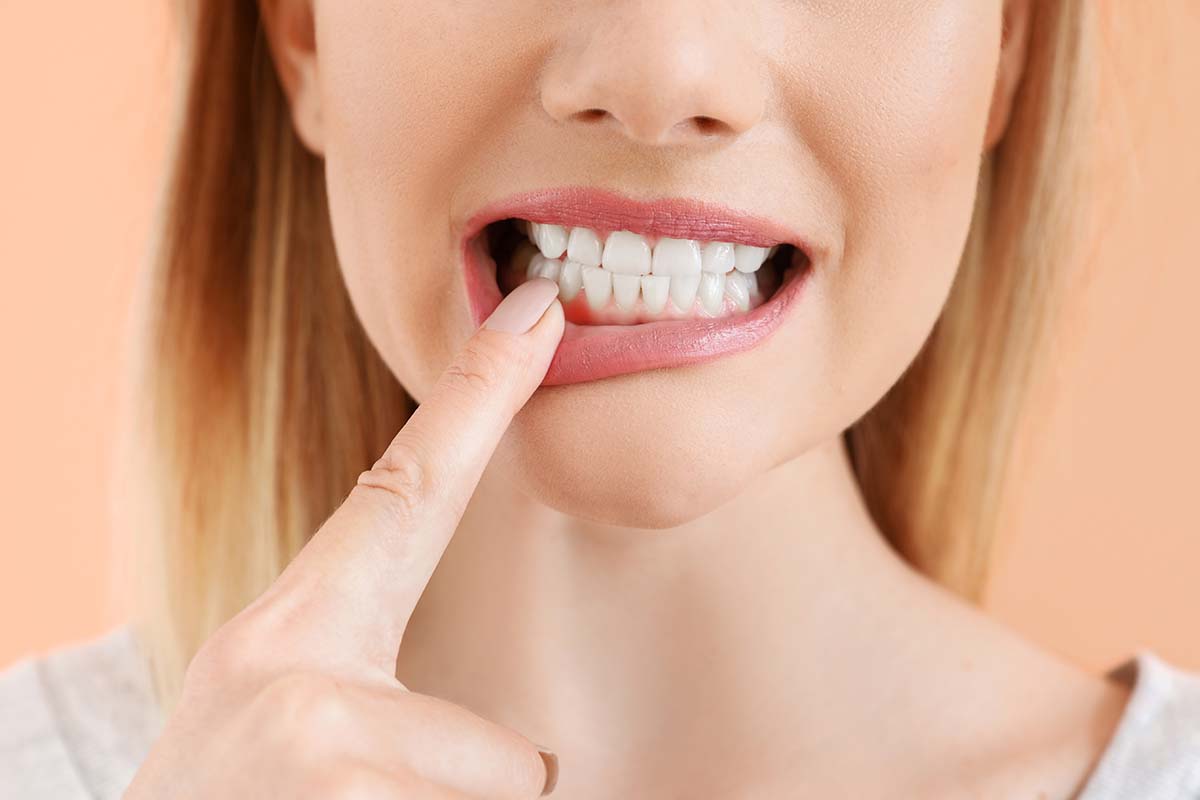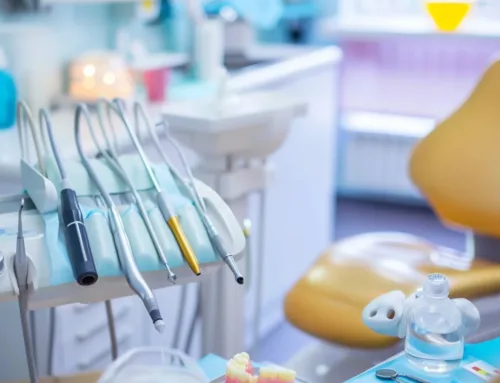Complete Guide to Gum Health & Disease Prevention
It’s no secret that to have healthy teeth, you also need to have healthy gums. Taking care of your gums is very important, and developing an oral care routine that also pays close attention to proper gum maintenance can have significant benefits to the overall state health for your mouth. Here, you’ll learn why caring for the health of your gums is so critical, along with helpful tips to effectively prevent the negative effects of gum disease.
Throughout our lives, we are encouraged to take good care of our teeth as part of an overall approach to maintaining a good state of health. This includes brushing our teeth regularly, flossing, and keeping to the recommended schedule of dental health checkups with our dentists and dental hygienists. However, keeping our mouths in good health doesn’t end there. In truth, there are several other aspects to consider regarding the health of our mouths, and that includes taking a very serious look at the health of our gums.
But, how can you know if your gums are in good health or not? It may not be so easy to determine just by looking at them. Fortunately, there are a few telltale signs that are good indicators on whether your gums are in excellent condition, or if it’s time to get them looked at by your dentist. Let’s review these warning signs so you’ll have a better idea of how healthy your gums are.
Are Your Gums Healthy?
 In general, healthy gums have two characteristics. First, they should have a pink coloration. When you take a look in the mirror at your gums, using clean hands, gently pull your lips away to get a better view and closely examine the coloring of your gum tissues. Are there any areas that are darker red, or spots that have a mottled appearance? These can be signs of gingivitis, which is a precursor to more advanced cases of gum disease.
In general, healthy gums have two characteristics. First, they should have a pink coloration. When you take a look in the mirror at your gums, using clean hands, gently pull your lips away to get a better view and closely examine the coloring of your gum tissues. Are there any areas that are darker red, or spots that have a mottled appearance? These can be signs of gingivitis, which is a precursor to more advanced cases of gum disease.
Next, gently press your fingertips against the tissues of your gums to test their firmness. Healthy gums have a very firm feel to them, with very little give when pressure is applied. If there are areas of your gums that are swollen, puffy, or very soft to the touch when compared to the surrounding areas, these can also be early warning signs of gum health issues. Another similar sign to watch for is if there happens to be frequent bleeding of the gums when brushing your teeth or flossing.
If the gums have gradually started receding away from the teeth, exposing more of the root over time, this can also be a symptom of gum health issues that must be treated. Gum recession can be linked to other health problems as well, so if you notice this on your teeth, it would be wise to schedule an appointment with your dentist to have an oral examination and find out more.
In addition, any pain you may experience when applying gentle pressure to your gums should be noted and you should book an appointment for a dental exam at your earliest opportunity. Pain can be a symptom of many types of dental health issues that require urgent care, so it’s best to not take any chances and get a diagnosis from your dentist as soon as possible. These types of warning signs are most commonly associated with gum disease, also known as periodontitis.
 What Is Gum Disease?
What Is Gum Disease?
Periodontitis is the medical name for a dental health condition where the gums of the patient have become infected with bacteria. Gum disease creates swelling and sensitivity as the bacteria degrades the integrity of the firm gum tissue that holds the teeth securely in place. Over time, the weakening of the gums that occurs due to the infection can eventually lead to loosening of the teeth. Gum disease can even cause teeth to fall out entirely if it is left untreated, and in the most severe cases may even progress to the point where it can be life-threatening.
What Are the Leading Causes of Gum Disease?
As gum disease is defined as an infection of the gum tissue due to a build-up of harmful bacteria, the leading cause is improper dental health care and poor oral hygiene. Neglecting the recommended oral care habits such as tooth brushing, flossing, and the use of antibacterial oral rinses will eventually lead to the accumulation of bacteria in the gaps between the teeth and in the gum pockets at the base of the teeth. This bacterial build-up is known as plaque, and manifests as a sticky foul-smelling substance on the surfaces of the teeth.
If plaque is not removed, the acids and by-products created by the bacteria will eventually cause hardening and transform the plaque into tartar. Tartar is a yellowish or brownish coating on the teeth, usually rough in texture, that is so hard it cannot be simply brushed away using a toothbrush. Because tartar is so tough, it can only be cleaned off using professional dental tools by a dentist or hygienist. The tartar and plaque that lie below the gum line and in the soft gum pockets surrounding the teeth are where gum disease starts, as bacteria growth flourishes and the infection of the gum tissue progresses.
There are also many other factors that can contribute to the likelihood of developing gum disease. Certain lifestyle habits such as the use of tobacco, excessive consumption of alcohol, and poor diet and nutrition can all accelerate the onset of gum disease. Some types of medications, particularly those that influence hormone balance in the body, can also play a role in increasing the risk of gum disease. Other chronic health conditions, diabetes for example, can also raise the risk of periodontitis for some patients.
How Is Gum Disease Treated?
Since periodontitis is a bacterial infection, the predominant way of treating it is to address the infection itself. After your condition has been assessed, your dentist will determine the best course of action. This may include an antibiotic medication to treat the infection of the tissue. In addition, a thorough cleaning of the teeth will be required to remove the built-up accumulation of plaque and tartar and remove the source of the bacterial growth. Depending on the severity of the gum disease, your dentist may recommend a shorter interval between dental checkups so they can closely monitor your progress and take any additional action needed to expedite the healing.
In cases of gum disease that are more severe, it may be necessary to treat the condition with a surgical procedure. If the infection of the gum tissue cannot be adequately treated with antibiotics, a gum graft may be used to replace the infected sections with healthy tissue. Alternatively, gum recession and gum disease can also be treated using an innovative procedure known as the Pinhole Surgical Technique. This minimally-invasive treatment works to correct gum recession through a tiny surgical incision in the gums through which specially-sized dental instruments are inserted. Using these instruments, the gum tissue is manipulated and repositioned to restore the health and integrity of the gums, thereby increasing their strength and obtaining better treatment outcomes for the patient.
What are the Best Ways to Prevent Gum Disease and Care for Healthy Gums?
Like many other health conditions, the best way to treat gum disease is to prevent it from occurring at all. Quite simply, stopping gum disease starts with taking great care of your teeth and mouth with a good at-home oral hygiene routine. Brushing the teeth thoroughly with a soft-bristled brush and good quality toothpaste is essential. Using the brush to gently massage the gums as you go can work to stimulate the tissue, promoting circulation and strengthening these areas.
Flossing is a key element in the fight against gum disease, too. Flossing works to clean out plaque and food particles from those hard-to-reach spots in between the teeth and below the gum line. Removing plaque before it has a chance to develop into tartar helps maintain your gum health, and works to keep your breath fresher by getting rid of those stinky bacteria deposits. Another way to battle oral bacteria is with a germ-killing oral rinse or mouthwash. Regularly rinsing with an antibacterial mouthwash after brushing and flossing works to wash away any leftover particles and bacteria that was loosened.
Finally, it is absolutely essential to stick to a sensible schedule of visits to your dentist for checkups, examinations, and professional cleanings with your dental hygienist. Even though you may be doing everything right at home, there are some places in your mouth that are just impossible to get 100% clean. Visiting your dentist on a regular basis keeps your mouth in optimum health. It also allows your dentist to closely monitor the health of your teeth, gums, and mouth tissues for any early signs of potential issues. Early detection of any problems makes treating them much easier, and helps contribute to a better overall state of health and well-being.
Get Your Gums Checked Out Today & Keep Them Strong and Healthy with Georgian Dental
If you’re wondering how your gums are doing, why not schedule an appointment with Georgian Dental today and find out for sure? Our team of friendly dental professionals will gladly answer any questions you may have about gum health, gum recession treatments, and any other dental health concern. It’s our job to help keep your smile in style, so contact us today and arrange for your next appointment. We would be delighted to have you visit our clinic soon!
Appointment Request
If you’re interested in any of our procedures, and would like to meet with one of our dentists to discuss options, costs and get additional information, complete this short form and we’ll give you a call to arrange for a no-obligation appointment at our Barrie clinic.










